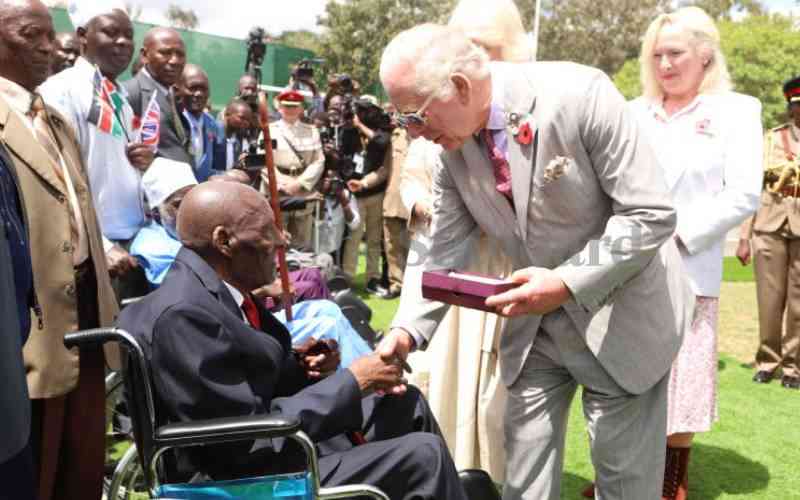×
The Standard e-Paper
Fearless, Trusted News

Donning a black suit freighted with medals, World War II veteran Michael Deya Nyagudi watches proudly as Britain's King Charles III honours four of his comrades-in-arms at the Kariokor Cemetery.
Unlike his peers, who because of the vagaries of war and old age are on wheelchairs, Nyagudi can walk albeit with a walking stick, which he clasps with his left hand drilling it into the soil with every step.